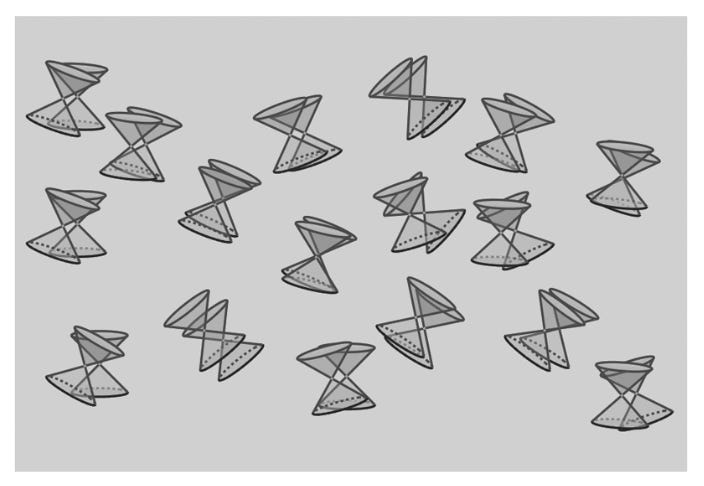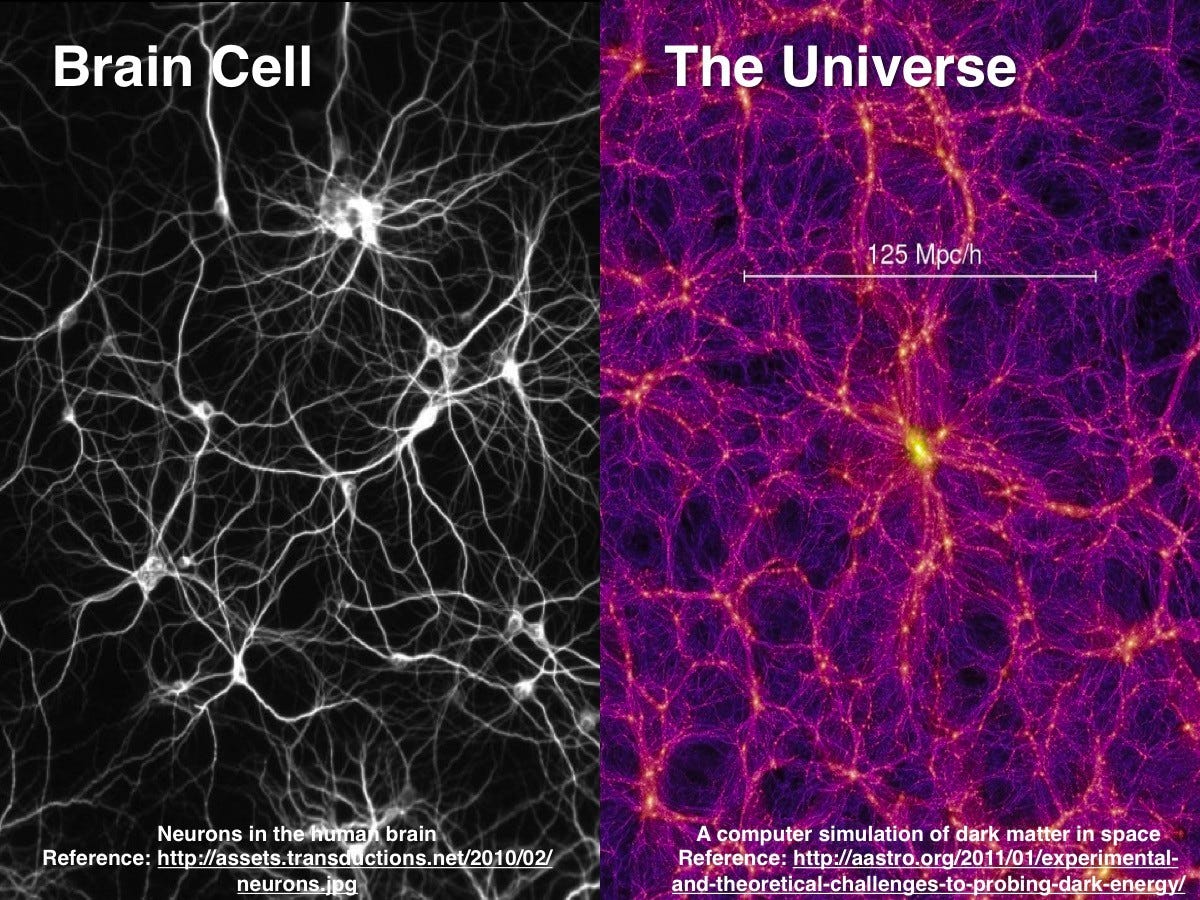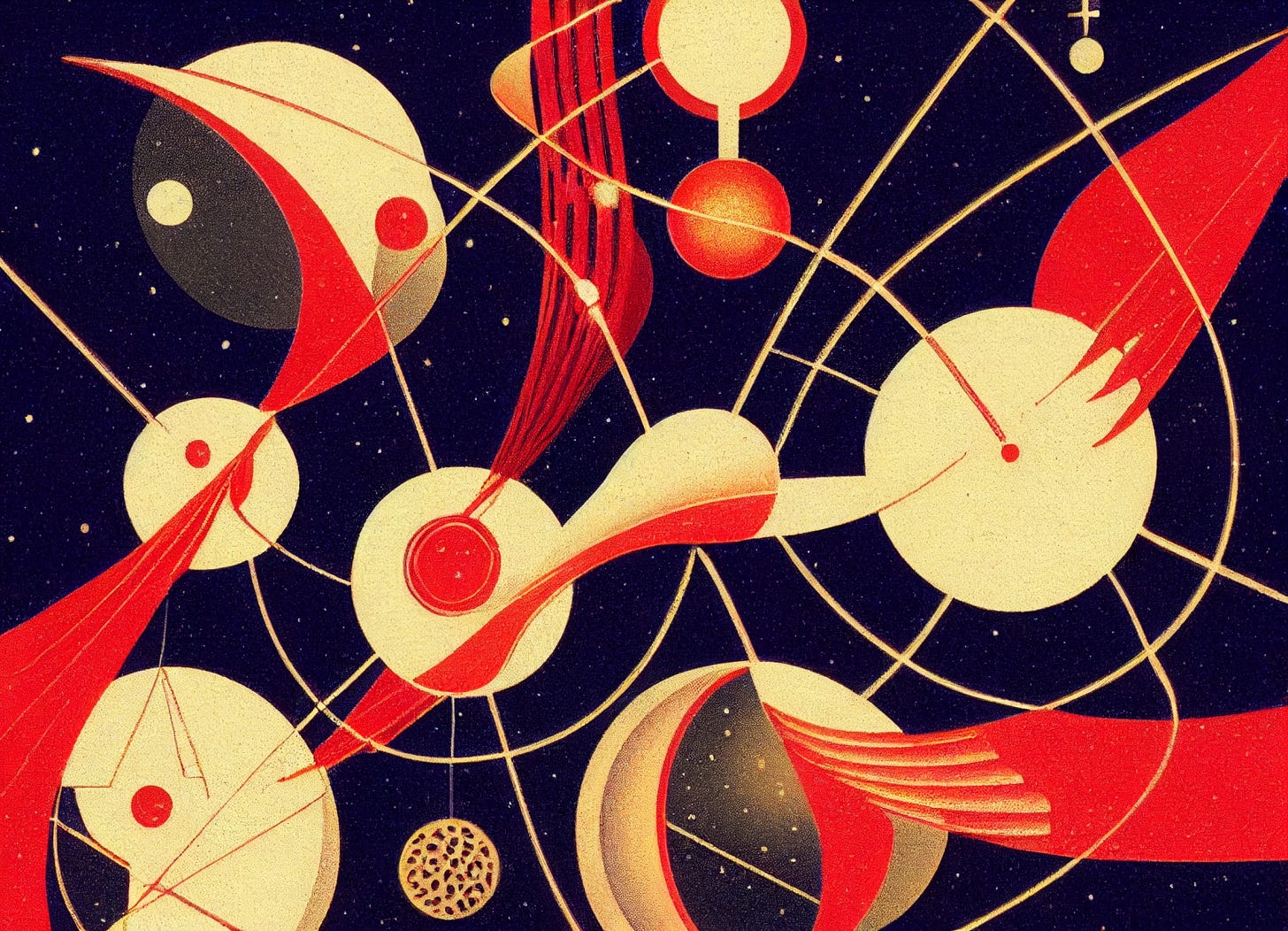When I met my holy guardian angel Tamiel who is invested in the development and distribution of astrology, she told me an important idea: through divination, I could learn anything I was prepared to handle knowing. While I regularly predict the future for clients and friends, this was about my life, my difficulties, hopes, desires, and dreams. As I contemplated the potential weight of taking on knowledge of my life, a strange thought-complex combining ideas from theoretical physics, the biblical story of partaking of the tree of knowledge, and divination in astrology formed. I'll attempt to convey it here.
Around this time I was reading Carlo Rovelli's The Order of Time, a mind-melting time-unpilling read (twitter thread with some excerpts). One key idea is that "time is ignorance". Most know that time is relative such that hypothetical extreme speeds can change your experience of time relative to others; The Order of Time doubles down by affirming that "There is no special moment [elsewhere in the distant universe] that corresponds to what constitutes the present here and now." The "present" doesn't exist--rather, it is a local phenomenon resulting from the observation of our immediate bubble. In fact, time is structured more like separate "cones" which all interact and overlap independently. Rather, the witnessing of time is more like quantum wave collapse whereby our observation stitches together the time from previously separate places. Molecules which are not colliding with other molecules are functionally immaterial, in a state of quantum superposition. As Rovelli puts it, "concreteness only occurs in relation to a physical system", meaning that anything unknown is, as far as we over-on-planet-earth are concerned, exists outside of (our) time.

There is a parallel idea in astrology. Frequently, astrology is discussed in the context of inceptions: the foundational, beginning moment of something captures the energetic quality of the moment conveyed by the relative position of the planets and earth. That moment could be a birth, a moment to undertake a task, the creation of a nation, whatever. The inceptional moment implies an almost mechanistic depiction of the universe where one simply needs to choose the correct time to do something to get a specific result. However, Geoffrey Cornelius argues very well in The Moment of Astrology that this is likely a smokescreen. His prime example is the attack by The Humanist journal in their 1975 September/October issue called "Objections to Astrology", wherein they included a "random" person's astrological chart as a supplementary example of how absurd astrology is. Except when read according to the rules of horary, which is consulting the sky to answer arbitrary questions. Cornelius does this deftly. The chart perfectly describes the attack itself against astrology according to traditional rules of interpretation! Cornelius' argument: this is evidence of a divinatory moment. The fact that the writers of The Humanist objection "arbitrarily" chose a person's chart that perfectly describes their own point is evidence that the arrival of an astrologer to interpret the chart is a divinatory moment or a katarche, a Greek word that literally means "beginning" but carries the connotation of opening a religious ritual. Cornelius' overall message is that all astrology is actually divinatory in nature, representing the union of the querent, consulting astrologer, and a moment in time (most often the querent's natal chart).
After all, each consultation with an astrologer takes place in a new moment where something specific is to be discussed that's relevant to the querent. For all of the deep technique in astrology, astrologers themselves have a tendency to be highly intuitive and even mediumistic, pulling the relevant information from both sky and ether to deliver a delineation of what the chart says. Whether that's a natal chart reading, an election, a horary, or mundane transits, looking is an act of asking. We might think of even the sky being in a state of quantum superposition until we actually look and notice, and when we do--that is an opening, a connection to a wider realm of understanding and insight. Knowledge and knowing. Ask and ye shall receive and so on.
I have been doing a lot of thinking about the nature of Mercury, who rules connection. The sort of connection that I believe Mercury emphasizes is literally the boundary where things touch. Mercurial action is the constant attachment and detachment between two things, which I figure to be very akin to the nature of how neurons (and possibly, galaxies and energy within the universe) connect to each other at singular points which open up entire new pathways of understanding and insight. I find that the human mind exists in a singular stream, like a finger constantly pointing to one current experience going, "This is what I am experiencing right now, this is my world, this is what I know." We suddenly make a connection to a sad memory and we feel sad. We suddenly realize good news and we feel elated. That moment of connection opens up new things within us or shows us new things outside our selves.

When I think about katarche, I think about connection. Initiation of divination and initiation of a mystical space which guides our wisdom, sometimes invisibly, sometimes explicitly, into connection with a space much larger than ourselves. And we come back to the question: do I want to know? Do I want to have access to this part of myself? Do I have a choice? Perhaps not. In Precognitive Dreamwork and the Long Self, Eric Wargo makes the compelling case that many--possibly most or all--dreams are precognitive in some way, pointing to significant future events. And not just that, but that the fact you have a precognitive dream at all means that the thing in the future has "already" happened, because otherwise you wouldn't have the precognitive dream! (If that's hard to stomach, you may like the steelman, full-of-citations Time Loops.) A frequent topic of discussion among my friends is whether or not magic actually works, or if it's just ourselves having a premonition about some upcoming change, which motivates us to do magic to align with that outcome. Of course, some outcomes defy known physics and it's difficult to say that the magical act was incidental to the outcome. Rather, it's more like the outcome already happened but the magic is necessary for that outcome to exist--therefore, you must have will be doing done some magic in the futurepast already. So go do it!
There's a rhyme here with astrology, too. Electional astrology is choosing when to do something for the best result. It is, arguably, a form of magic. Is the same thing happening here? Perhaps the decision to perform a magical act and the result are in fact not two distinct events but a decision made outside of time. But we still are left with the same question: who made the choice? Did I have a choice? Do I have a choice?
Tamiel, angel of astrology, is a fallen angel. You can read the first link in this post for the full background but she was one of the 200 Watcher angels who, according to the The Book of Enoch, was imprisoned for coupling with humans and teaching them astrology. Yet the way Tamiel describes it is as if they and the other angels knew it was their duty to fall, and their purpose to be punished. I have pondered similar things about the story of Adam and Eve in the Garden of Eden. I generally take most biblical tales to be metaphorical descriptions of the creation and structure of the universe. Before eating of knowledge, everything was great. But also not the reality as we understand it; a paradisiacal playground with no difficulty or responsibility. One interesting thing from The Order of Time is the idea that if you could actually observe the entire universe, everything would appear to be motionless. This is because relativity--subjectivity--is required for time to pass. To be omniscient is to be both everything and nothing simultaneously. And before the fall, there was a space without connection, where we knew nothing.
I'm mixing my metaphors here, but this is all to say that I have begun to view astrology and other forms of divination as an engagement with the sin of knowledge. I don't take this to be the fundamentalist Christian idea of sin (with the ensuing hellfire and damnation and whatnot), but rather a staining, a state of brokenness--because true wholeness cannot exist in a subjective universe! To become truly whole is to know everything and nothing. To choose to see beyond where we are now, subjectively--to choose to take on the weight of knowledge--is a fundamentally human choice. I don't believe we need to apply value judgments to that choice, but it certainly comes with plenty of consequences. For myself, I have taken this as a call to become deeper, stronger, wiser, and more compassionate, because I want to choose to see and to be able to tolerate what I do see without falling into polarization, fear, and distortion. In this way, I feel that I draw closer to that unknowable source, the one that sees all.




very good to find your work, Sadal! Gratitude & blessings!
Wowie Zowie. I’m with you on this. Been thinking similarly.